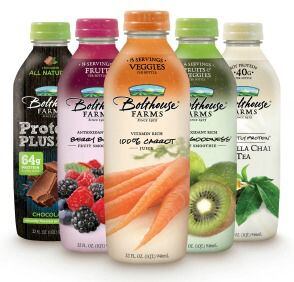Speaking on a conference call to discuss the firm’s fourth quarter results this morning, chief executive Denise Morrison noted that US consumers made "4% fewer trips to buy groceries in the fourth quarter and purchased less per trip, contributing to a 1% decline in food dollar sales".
Meanwhile, cost inflation had driven "significant pricing to the consumer, which tends to put pressure on volumes", she added.
“Our take on these trends is that the consumer continues to be cautious, and that is not likely to change in the near future... While we’ve had some important accomplishments this year, we also recognize that driving change at Campbell will require a sharper focus on execution.”
51 new products to launch in US Soup and Simple Meals in fiscal 2013
However, bosses had “significantly stepped up innovation” in the US Soup and Simple Meals division with more than 50 new products scheduled to launch in fiscal 2013 vs 41 products in 2012 and just seven new products in 2011, said Morrison.
“Our transition is taking us longer than we anticipated. However, we are starting to see some green shoots. [But] the pace of our progress needs to accelerate.”
The firm, which recently struck a $1.55bn deal to acquire Californian fresh food and premium beverages maker Bolthouse Farms, posted a 27% rise in net earnings for the quarter ended July 29 to $127m on sales that were flat at $1.613bn.
Net sales of US soup up 9% in Q4, but Campbell lost market share in full year
Net sales of US soup were up 9% in the quarter, driven by a 14% rise in condensed soup (which partly reflected a surge in orders from retailers ahead of a price increase), a 1% rise in ready-to-serve soup and a 4% rise in broth.
However, IRI data* for the year to July 29 shows that Campbell lost market share in wet soup with dollar sales down 2.9% in this category while sales of other wet soup brands were up 10% over the same period.
Q4 net sales were up 2% to $556m in global baking and snacking, up 7% to $461m in US soups and simple meals, up 1% to $294m in international simple meals and soups, up 3% to $181m in US beverages (driven by double-digit increases in V8 Splash and gains in V8 V-Fusion) and down 2% to $121m in North American foodservice (primarily due to declines in canned soup sales).
Bolthouse Farms deal to add $750m in sales in fiscal 2013

Morrison added: “In the first year of our strategic transition, we’ve renewed our focus on consumer insights, reinvigorated our brand-building efforts and significantly improved our innovation pipeline.
“With the acquisition of Bolthouse Farms, we positioned Campbell for growth in the rapidly expanding packaged fresh market."
Full-year sales were flat at $7.7bn while net earnings dropped 4% to $774m.
*The IRI data covers food, drug and mass merchandise stores plus military stores and most dollar stores and club stores, and accounts for about 80% of Campbell’s US retail sales.
